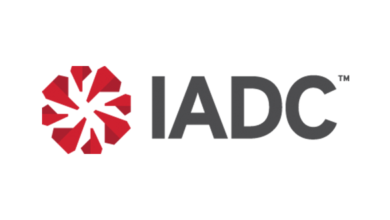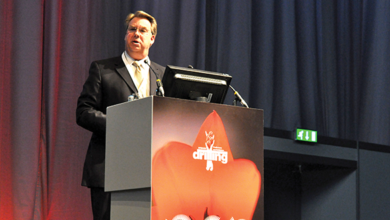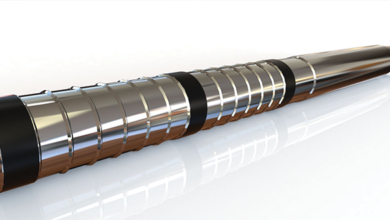Critical issues in drilling & completions
Automation, digitalization pave path for drilling contractors seeking to align with operator KPIs, reap better rewards for better performance
By Linda Hsieh, Managing Editor
In North America, drilling contractors have become so good at what they do that it seems remaining improvements can only be incremental – measured in hours, minutes or even seconds. So where can companies look for the next step-change, the next differentiator that will set them apart from the competition? The consensus: automation and digitalization.
In particular, process automation appears to have gained significant momentum over the past year. By automating the driller’s operation of the control system based on best practices of the best drillers, human variance can be reduced or even eliminated from rig to rig, from well to well. The result is consistency and repeatability.
Precision Drilling, for example, has already deployed process automation on 20 of its rigs and plans to roll the technology out across its entire AC fleet of 106 rigs over the next two to three years. By using this type of automation, “we find that the driller doesn’t have to focus so much on making sure he times a 14-step process perfectly,” said Kevin Neveu, President and CEO. “He can more closely monitor the operation of the equipment, watch his crew more closely and better observe the overall drilling cycle. He’s freed up to operate in a more intelligent supervisory role, by eliminating the hours spent mechanistically timing the pressing of different buttons.”
When the drilling process is automated in this way, it also opens new doors for drilling contractors, many of whom have voiced their dissatisfaction with the traditional dayrate model. “The issue is that the dramatic increases in drilling efficiency and wellbore quality made by drilling contractors are not reflected in the dayrate model,” said Byron Dunn, President and CEO of Independence Contract Drilling. “The benefit of those advances goes only to the shareholders of the E&P company, not to the shareholders of the drilling contractor… Contractors need to receive more than dayrates in order to drive the performance gains that operators want.”
Whether performance-based contracts are the way forward, or perhaps some sort of hybrid between performance- and dayrate-based models, remains to be worked out by the industry. But by taking advantage of the benefits of automation, drilling contractors will be more equipped to take on additional risks in their search of a better business model. They will also be more aligned with operators’ KPIs, increasing the likelihood of greater rewards for greater performance.
“Today, the driller doesn’t deliver wells,” said David Reid, Chief Marketing Officer for National Oilwell Varco. “He delivers a machine that can deliver wells; he drills the easy part and gives the hard part to specialists. Now, that capability can go into the driller’s hands so he can offer more specific outcome-based value to the operator and get better rewarded for better wells.”
Increasing levels of automation and digitalization is also transforming the type of talent the industry needs. “As technology changes and as we find better ways to adopt those technologies into our industry, it’s critically important that we train our workforce so they have the proper skills to deploy those technologies,” said Garrett Jackson, VP of Drilling for Devon Energy. “More and more, our employees are specialists, not generalists. We don’t just have petroleum or drilling engineers. We have data scientists and black-belt process experts, as well as application development engineers and integrated planning personnel. The staffing transformation is well under way.” DC







